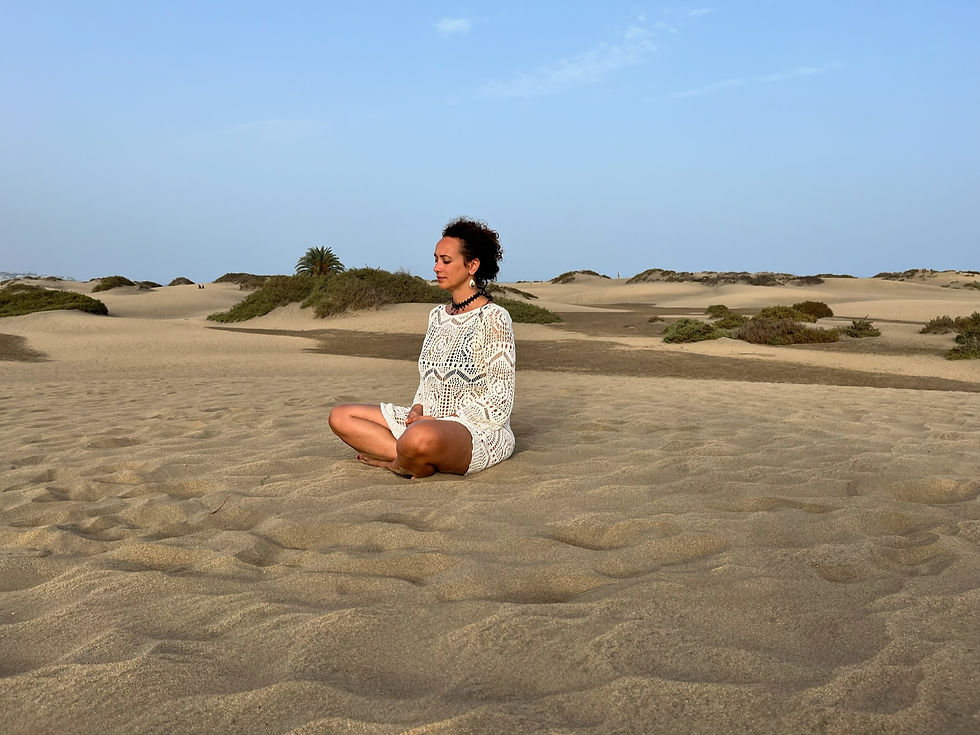Saying No
- Khawla Shehadeh
- Sep 10, 2023
- 4 min read

"Say no and find out who your friends are" says Gabor Maté with a smile. For many people, setting boundaries and saying no is difficult.
It is said so often that it is almost a cliché: "you have to dare to say no and guard your boundaries". For some, it comes naturally to not take on anything they don't feel like doing, while others struggle with saying no and with having to disappoint.
The other day, I asked a friend to help me out. I asked her if she could come earlier to an appointment with a group of friends to help me prepare. She replied with that she would have to feel that out for a while to check whether it's all too much. She had already had a busy week and she has to drive from far and leave on time, etc. So, in this case, I was on the receiving end of a (possible) "No". My initial inner reaction was a feeling of loneliness and disappointment. I wasn't happy. There were judgements like "how selfish" and "nobody cares". In reality, these thoughts are not about her but all about my own desire and longing for companionship and support at that moment. When I compassionately acknowledged this longing then admiration and gratitude followed. I was grateful that she is taking good care of herself. After all, I want nothing more than for her too to be happy and to guard her energy and wellbeing. That is what true friendship means to me.
The very knowledge that she will only do something for me when she genuinely feels like it, and has the time and energy to do so, gives me relaxation and security. For I want nothing more than for her to do something for me only if it is from the heart and with a happy energy: "Like a child feeding a hungry duck" as Marshall Rosenberg described it. You don't expect anything in return, the joy of giving is the reward. That's true giving.
Conflict and tension often arise when people do things for the other that they deep down don't feel like doing. It is giving as a transaction. You do it, but out of obligation, social expectation, guilt, fear of punishment/rejection or even for the reward of love and approval that you get for it. Resentment and (power) inequality arise in the relationship: "I only did this for you". Besides conflict, this also leads to alienation from yourself: "What do I really want? What do I need to be happy?". This already becomes difficult to answer if you are always preoccupied with the needs of others. Imbalances like depression, numbness, anxiety, addiction, burnout and midlife crisis, can stem from it. Gabor Maté, the famous physician who does a lot of research on trauma and human behaviour, even claims that many physical complaints, especially autoimmune diseases, are related to how far you have become removed from your authentic self: your feelings, how you deal with them and how you express them. Body and mind go together, when one suffers, they all suffer.
In fact, saying no is nothing more than saying yes to something else. Your needs, desires, and wants are the life energy flowing through you. They drive everything you do or say. When you say no, you are responding to a need that prevails at that moment. But what if the other person has a different need, you ask?
Suppose you want to have a tidy kitchen while I want to lie quietly on the sofa. For me, there seem to be only two choices at that moment: fight for what I want or submit to your will for the sake of the harmony. Yet, there is another way. If we start talking about the underlying needs of cleaning up and lying on the sofa, we can begin to understand each other better. I want relaxation but then it turns out that you also also are needing of relaxation but are annoyed by a messy kitchen and therefore cannot find that relaxation. From here, we have a conversation about what to do. Together, we can come up with countless strategies that fulfil all our needs. Like, for example, going out together to do something relaxing and tackling the kitchen at a later time when we feel more recharged.
This, in a nutshell for me, is the essence of Marshall Rosenberg's empathic communication. Connecting with my needs, expressing them honestly and looking for win/win. It really has completely changed my life. I have much more clarity in what I feel and want and can respond to them with honesty more often. At the same time, I am more often able to compassionately listen and receive from the other person with all his/her feelings and needs, even if they are expressed in a tragic way ;)
If you want to know more about Empathic or Connecting Communication, see workshop on 16 September. Also, a Mindfulness 8-week starts on Friday 15 September if you still want to grab this opportunity and otherwise just come and relax on one of the relaxation days.
Sweet greetings for now, enjoy the sunny days, and see you soon!





Comments